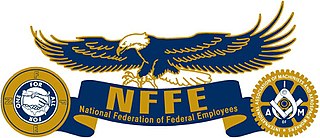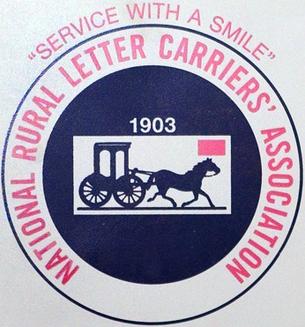Canada Post Corporation, trading as Canada Post, is a Crown corporation that functions as the primary postal operator in Canada.
Collective bargaining is a process of negotiation between employers and a group of employees aimed at agreements to regulate working salaries, working conditions, benefits, and other aspects of workers' compensation and rights for workers. The interests of the employees are commonly presented by representatives of a trade union to which the employees belong. A collective agreement reached by these negotiations functions as a labour contract between an employer and one or more unions, and typically establishes terms regarding wage scales, working hours, training, health and safety, overtime, grievance mechanisms, and rights to participate in workplace or company affairs. Such agreements can also include 'productivity bargaining' in which workers agree to changes to working practices in return for higher pay or greater job security.

The Canadian Labour Congress, or CLC is a national trade union centre, the central labour body in Canada to which most Canadian labour unions are affiliated.

The Public Service Alliance of Canada is one of Canada's largest national labour unions. It is the largest union in the Canadian federal public sector. PSAC members work in every province and territory, and also work abroad in embassies and consulates.

The Federal Protective Service (FPS) is a federal law enforcement agency of the United States Department of Homeland Security (DHS). It is also "the federal agency charged with protecting and delivering integrated law enforcement and security services to facilities owned or leased by the General Services Administration (GSA)"—over 9,000 buildings—and their occupants.

Communications, Energy and Paperworkers Union of Canada, abbreviated CEP in English and SCEP in French, was a largely private-sector labour union with 150,000 members, active from 1992 to 2013. It was created in 1992 through the merger of three unions: the Canadian Paperworkers Union, the Communications and Electrical Workers of Canada, and the Energy and Chemical Workers Union. See below for some other unions that were merged into the CEP. CEP/SCEP was affiliated to the Canadian Labour Congress.

The Canadian Union of Postal Workers is a public-sector trade union representing postal workers including letter carriers, rural and suburban mail carriers, postal clerks, mail handlers and dispatchers, technicians, mechanics and electricians employed at Canada Post as well as private sector workers outside Canada Post. Currently comprising upwards of 50,000 members, the Canadian Union of Postal Workers has historically been labeled as militant because of some of the actions undertaken since its inception in 1965 to help guarantee rights to all postal workers. According to former president Jean-Claude Parrot, "We succeeded to get the support of the membership because we earned our credibility with them...we got that reputation [of militancy] because we earned it."
The Nova Scotia Federation of Labour (NSFL) is the Nova Scotia provincial trade union federation of the Canadian Labour Congress.
The Office and Professional Employees International Union (OPEIU) is a trade union in the United States and Canada representing approximately 88,000 white-collar working people in the public and private sectors. It has members in all 50 US states, the District of Columbia, and Puerto Rico, as well as in one local in Canada.
AMAPCEO, formerly known as the Association of Management, Administrative and Professional Crown Employees of Ontario, is a Canadian trade union representing mid-level public servants in Ontario. It was founded in 1992, recognized as a union by the provincial government in 1995, and negotiated its first collective agreement in 1996. As of March 2022, AMAPCEO represents over 14,000 professional and supervisory public servants who either work directly for the Government of Ontario in the Ontario Public Service (OPS) or in seven bargaining units outside the OPS in the Broader Public Sector (BPS). It is the second-largest public sector union in Ontario after the Ontario Public Service Employees Union, which generally represents more blue-collar workers.
The Canadian Union of Public Employees, Local 3902 is a Canadian labour union local representing sessional lecturers, postdoctoral researchers and teaching assistants (TAs) at the University of Toronto, Victoria University in the University of Toronto, the University of St. Michael's College and New College in the University of Toronto.

The Canadian Office and Professional Employees Union is a Canadian labour union representing approximately 35,000 white-collar workers, in both the private and public sectors, in 44 locals across Canada. Composed of former locals of the American-based Office and Professional Employees International Union (OPEIU), in 2004, 73 per cent of Canadian members voted in favour of forming their own, autonomous Canadian union. In June of that year, Canadian delegates withdrew from proceedings at the OPEIU international convention and formed COPE.

The United Nurses and Allied Professionals (UNAP) is a labor union in the United States which represents approximately 5,500 registered nurses, technologists, therapists, support staff, and other health care workers employed in Rhode Island, Vermont, and Connecticut.
The Indian Post & Telecommunication Accounts and Finance Service / IP&TAFS is a Group "A" Central Civil Services of the Union of India. The Service was started in the year 1972 for prudent and professional management of the finances of the Department of Posts and Department of Telecommunications which were the sole provider of the communications needs of the country at that time. Gradually, over time the service has crystallized into a professional cadre of over 376 officers. In 2017, 25 officers were recruited through prestigious Civil Services Examination conducted by Union Public Service Commission.
The Alberta Union of Provincial Employees (AUPE) is a Canadian trade union operating solely in the province of Alberta. With approximately 95,000 members as of March 2019, it is Alberta's largest union. AUPE is primarily a public sector union, with members employed in government, health care, education, boards and agencies, municipalities, and occasionally private companies.

The National Federation of Federal Employees (NFFE) is an American labor union which represents about 100,000 public employees in the federal government.

The National Rural Letter Carriers' Association (NRLCA) is an American labor union that represents the rural letter carriers of the United States Postal Service (USPS). The NRLCA negotiates all labor agreements for the rural carrier craft with the USPS, including salaries, and represents members of the rural carrier craft in the grievance procedure. The NRLCA's stated goal is to "improve the methods used by rural letter carriers, to benefit their conditions of labor with the United States Postal Service, and to promote a fraternal spirit among its members."
Communications Workers of America v. Beck, 487 U.S. 735 (1988), is a decision by the United States Supreme Court which held that, in a union security agreement, unions are authorized by statute to collect from non-members only those fees and dues necessary to perform its duties as a collective bargaining representative. The rights identified by the Court in Communications Workers of America v. Beck have since come to be known as "Beck rights", and defining what Beck rights are and how a union must fulfill its duties regarding them is an active area of modern United States labor law.

The Canadian Postmasters and Assistants Association represents rural postal workers for the Canada Post Corporation. The trade union belongs to the Canadian Labour Congress as the federation's smallest national union.
The British Columbia General Employees' Union (BCGEU) is a trade union in British Columbia, Canada which represents over 85,000 members. The union employs over 200 servicing and administrative staff in 12 area offices across the province and at the Burnaby head office. The current President of the BCGEU is Paul Finch. Finch was elected to this position in 2024. Previous Presidents were Darryl Walker, George Heyman, John T. Shields, and Stephanie Smith.










